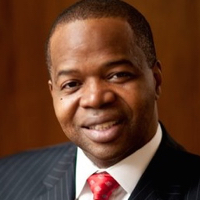Rascals case in brief
In the beginning, in 1989, more than 90 children at the Little Rascals Day Care Center in Edenton, North Carolina, accused a total of 20 adults with 429 instances of sexual abuse over a three-year period. It may have all begun with one parent’s complaint about punishment given her child.
Among the alleged perpetrators: the sheriff and mayor. But prosecutors would charge only Robin Byrum, Darlene Harris, Elizabeth “Betsy” Kelly, Robert “Bob” Kelly, Willard Scott Privott, Shelley Stone and Dawn Wilson – the Edenton 7.
Along with sodomy and beatings, allegations included a baby killed with a handgun, a child being hung upside down from a tree and being set on fire and countless other fantastic incidents involving spaceships, hot air balloons, pirate ships and trained sharks.
By the time prosecutors dropped the last charges in 1997, Little Rascals had become North Carolina’s longest and most costly criminal trial. Prosecutors kept defendants jailed in hopes at least one would turn against their supposed co-conspirators. Remarkably, none did. Another shameful record: Five defendants had to wait longer to face their accusers in court than anyone else in North Carolina history.
Between 1991 and 1997, Ofra Bikel produced three extraordinary episodes on the Little Rascals case for the PBS series “Frontline.” Although “Innocence Lost” did not deter prosecutors, it exposed their tactics and fostered nationwide skepticism and dismay.
With each passing year, the absurdity of the Little Rascals charges has become more obvious. But no admission of error has ever come from prosecutors, police, interviewers or parents. This site is devoted to the issues raised by this case.
On Facebook
Click for earlier Facebook posts archived on this site
Click to go to
Today’s random selection from the Little Rascals Day Care archives….
Click for earlier Facebook posts archived on this site
Click to go to
Today’s random selection from the Little Rascals Day Care archives….
DA acknowledges junk science in arson conviction

brooklynda.org
Ken Thompson
Dec. 17, 2015
“Three men convicted of murder by arson for a 1980 fire in Brooklyn (were) exonerated on Wednesday….
“What carried the three men into prison was not reliable evidence of an intentionally set blaze, but rather an arson investigation that was more like shamanism than science, rooted in hunches and folklore and disconnected from the dynamics of actual fires. Like the comparisons of bite marks, hair and handwriting, it was a forensic practice that had the authority of white-coat laboratory science but virtually none of its rigor….”
– From “Between Guilt and Innocence, an Evolution in Fire Science”
by Jim Dwyer in the New York Times (Dec. 16)
Hats off to District Attorney Ken Thompson, who moved to vacate the three convictions, citing “circumstantial evidence, outdated science and the testimony of a single, wholly unreliable witness….”
Columnist Dwyer is reminded of a statue at the University of Pennsylvania Law School depicting a mythological Chinese beast believed to have the ability to tell the guilty from the innocent by butting them. Inscribed on its base: “Slow and painful has been man’s progress from magic to law.”
“Slow and painful” indeed. Ask Junior Chandler, who has been imprisoned since April 17, 1987, for committing the magical crime of “satanic ritual abuse.”
Parents’ gullibility ‘grounded in anxiety’
Nov. 25, 2011
“In the prototypical witch hunts in Europe and in the Massachusetts colony, the accused were often scapegoats for some calamity – disease, bad harvests, the birth of a deformed child.
 “In the witch hunts of the ’80s, there was no such injury to be avenged or repaired. There was, however, a psychological need to be fulfilled. Our willingness to believe in ritual abuse was grounded in anxiety about putting children in day care at a time when mothers were entering the work force in unprecedented numbers.
“In the witch hunts of the ’80s, there was no such injury to be avenged or repaired. There was, however, a psychological need to be fulfilled. Our willingness to believe in ritual abuse was grounded in anxiety about putting children in day care at a time when mothers were entering the work force in unprecedented numbers.
“It was as though there were some dark, self-defeating relief in trading niggling everyday doubts about our children’s care for our absolute worst fears – for a story with monsters, not just human beings who didn’t always treat our kids exactly as we would like; for a fate so horrific and bizarre that no parent, no matter how vigilant, could have ever prevented it.”
– Margaret Talbot, writing in The New York Times Magazine, Jan. 7, 2001
Holocaust denial shows vulnerability of real memory
Oct. 11, 2013
“Holocaust deniers have managed to receive, in recent years, a respectful hearing on college campuses and elsewhere, despite the existence of mountains of firsthand and corroborated traumatic memories of the Holocaust provided by many thousands of survivors – memories that don’t have to be recovered because they are all too vividly, and all too persistently, remembered.
“Holocaust deniers began to achieve their victory over memory even before efforts were made to establish the new category of ‘recovered memory.’ If recovered memory remains unchallenged as a new form of memory, then one can only guess how much more vulnerable to doubt and manipulation legitimate memory will become.”
– From “The Monster In the Mists” by Walter Reich in the New York Times (May 15, 1994)
All molesters, please gather now on E. Eden Street
June 15, 2012
“How did such a large group of child molesters assemble? This is not New York, this is Edenton, North Carolina.”
– Edward B. Simmons, making his closing argument on behalf of Dawn Wilson (Jan. 14, 1993)











0 CommentsComment on Facebook